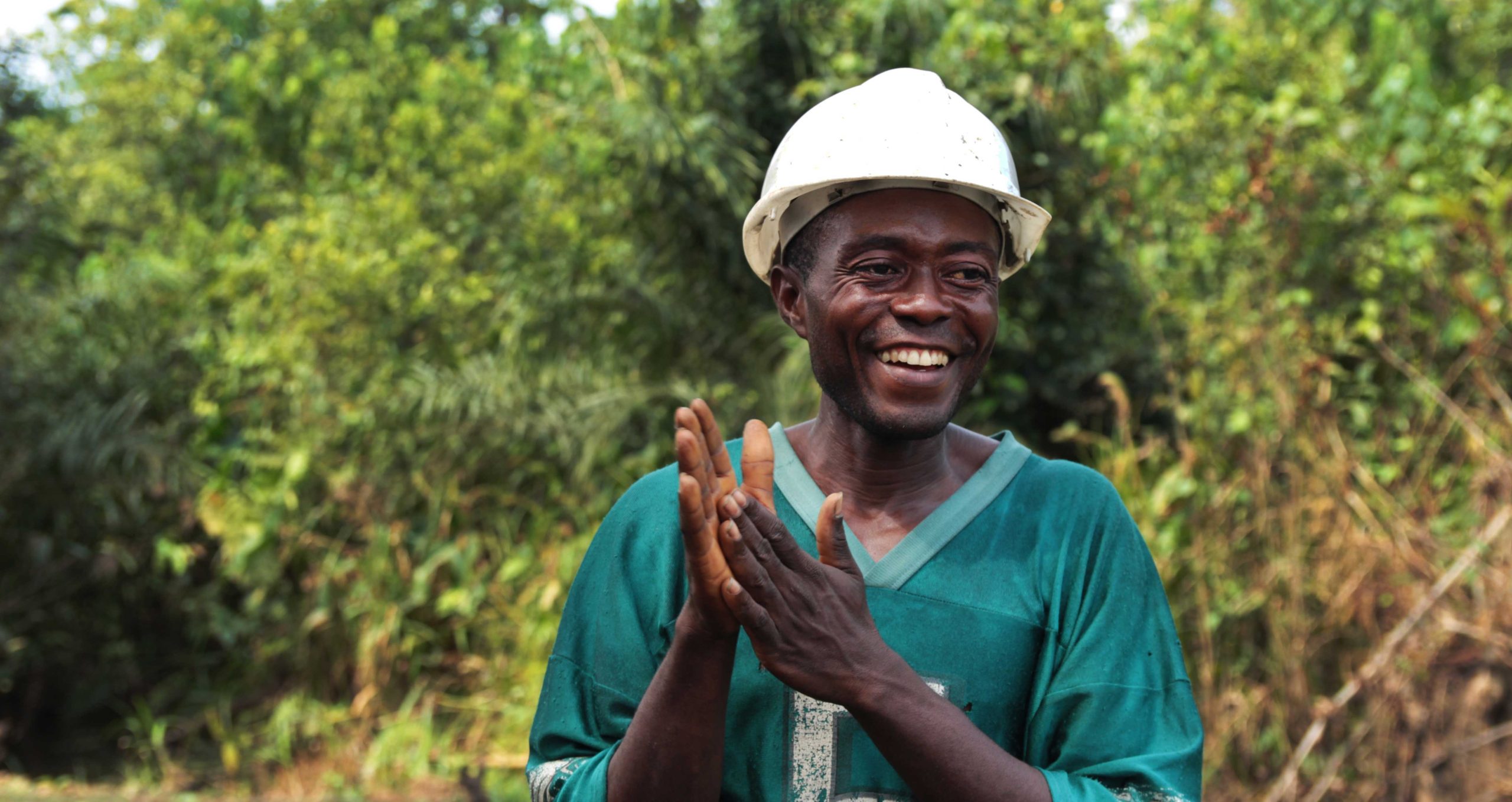Training unlocks a lifetime of knowledge for farmers in Liberia
Farmers like Ansu, Fatu, and Ciatta invest in agriculture training to produce more food, earn more money, and build climate-resilient communities across Liberia.
By Annie Cameron
“Education has no end,” Ansu said as he looked out over his newly cultivated land. Ansu (pictured above), like many people in Liberia, has always had a desire to farm, but did not have the land or training he needed to sustain a livelihood. Then, Ansu was offered an opportunity through his neighbors.
Revered for his dedicated work ethic and great enthusiasm, Ansu was selected by his community to be one of 15,000 farmers to enroll in a project designed to improve food security and reduce poverty and malnutrition in rural communities across Liberia.
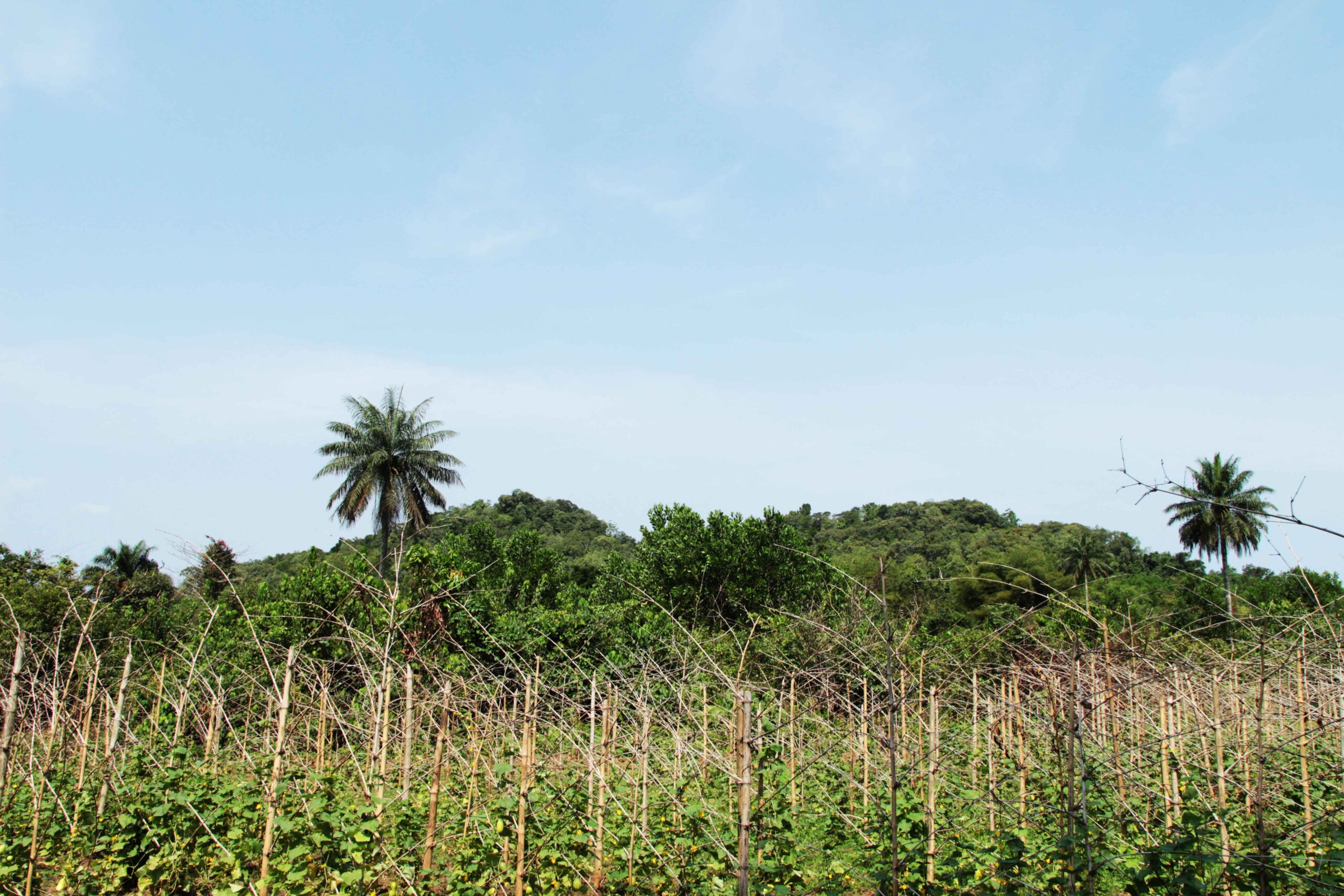
BRAC’s “Breaking the Cycle of Poverty and Malnutrition” project was launched in 2018 to train and organize Liberian farmers and help them increase their yields, boost their incomes, and improve their food security. One of the core features of the project involves facilitating training that empowers farmers with knowledge and skills.
Read more: Learn about BRAC’s agriculture programs.
Lead farmers, like Ansu, cultivate their land to demonstrate modern farming techniques to other farmers in their communities. Every two weeks, these groups of farmers observe, analyze, and learn about new crop varieties and farming techniques from Ansu. This peer-to-peer exchange offers an innovative means of sharing knowledge and fostering learning in rural communities.
BRAC has trained over 11,000 farmers in modern farming techniques such as homestead gardening to cultivate nutrient-rich crops and climate smart agriculture to mitigate the devastating effects of climate change.
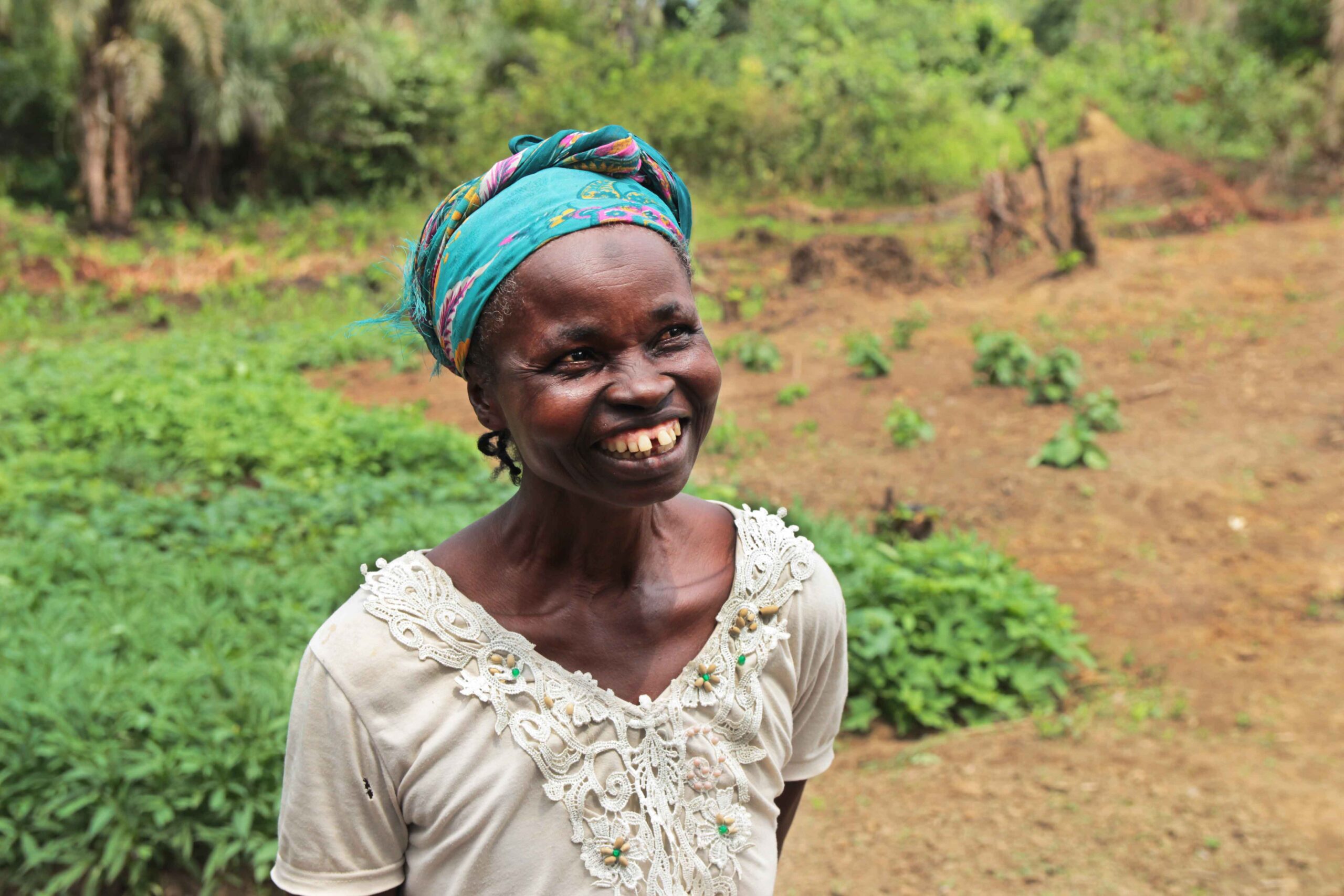
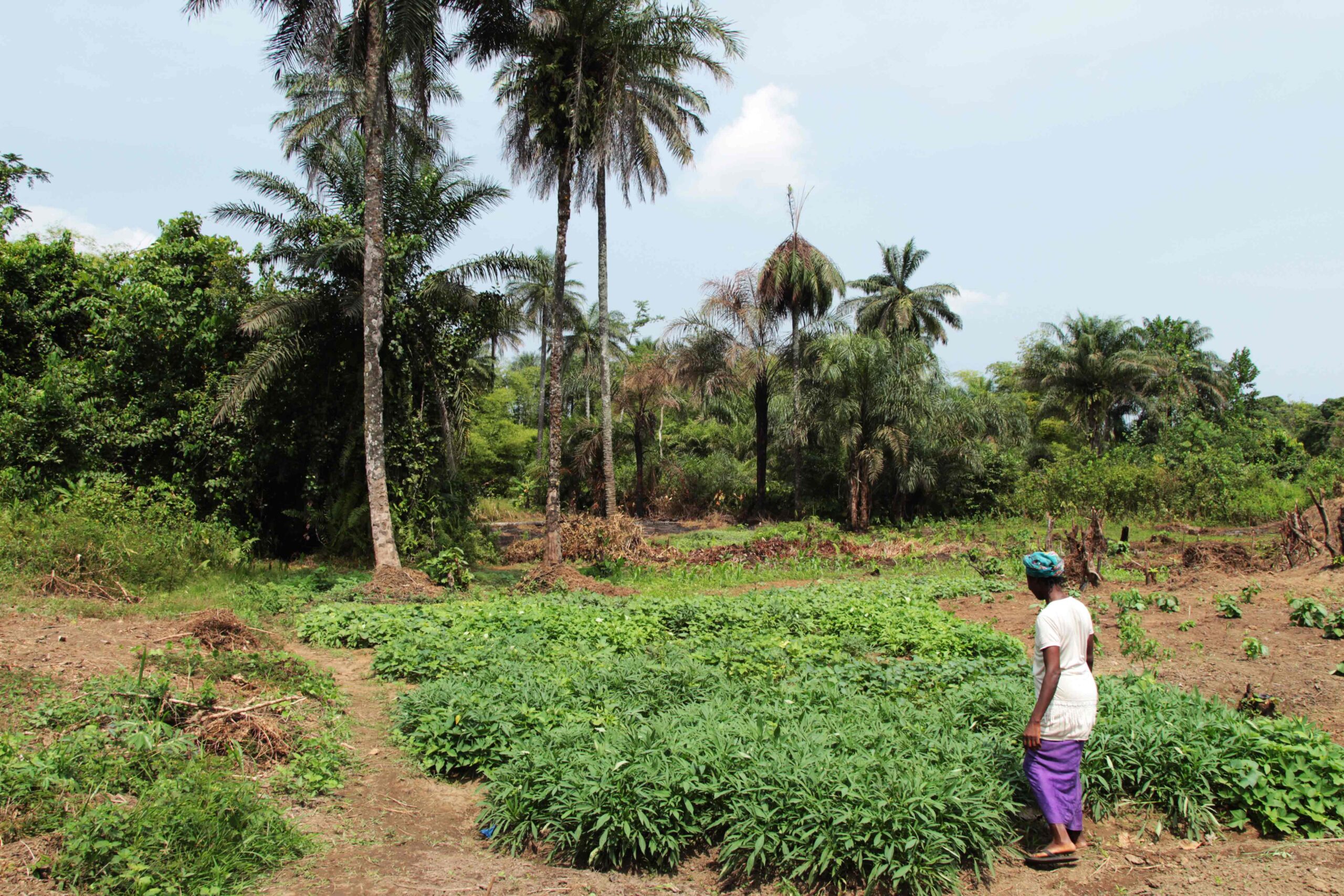
Fatu (above) used to be a rice farmer, but she struggled to maintain her productivity as climatic conditions became less predictable in Liberia. With less rain and more frequent droughts, her water sources dried up and she was forced to haul the water she needed for her crops for several miles.
But after enrolling in BRAC’s program, Fatu was able to use seeds from BRAC to diversify beyond rice and cultivate a wide variety of nutrient-rich crops like peppers, sweet potatoes, and cabbage. She also learned to plant her vegetables under mounds of dirt and use sticks and leaves to shield them from the sun and retain more moisture to make a smaller quantity of water go farther.
Equipped with new knowledge, Fatu is now more resilient to shifting weather patterns. With her improved productivity and better crop yields, she sees a future for herself and her family. Although her education was limited, she envisions a future full of opportunity for her grandchildren.
“By the grace of god, my grandchildren will go to college,” she said.
BRAC’s community-based approach reaches people who are disproportionately marginalized, especially women, who make up nearly 70 percent of the farmers trained in Liberia over the past two years. A portion of the enrolled farmers are trained in raising livestock and poultry, which provides them with an excellent source of protein and a productive livelihood opportunity.
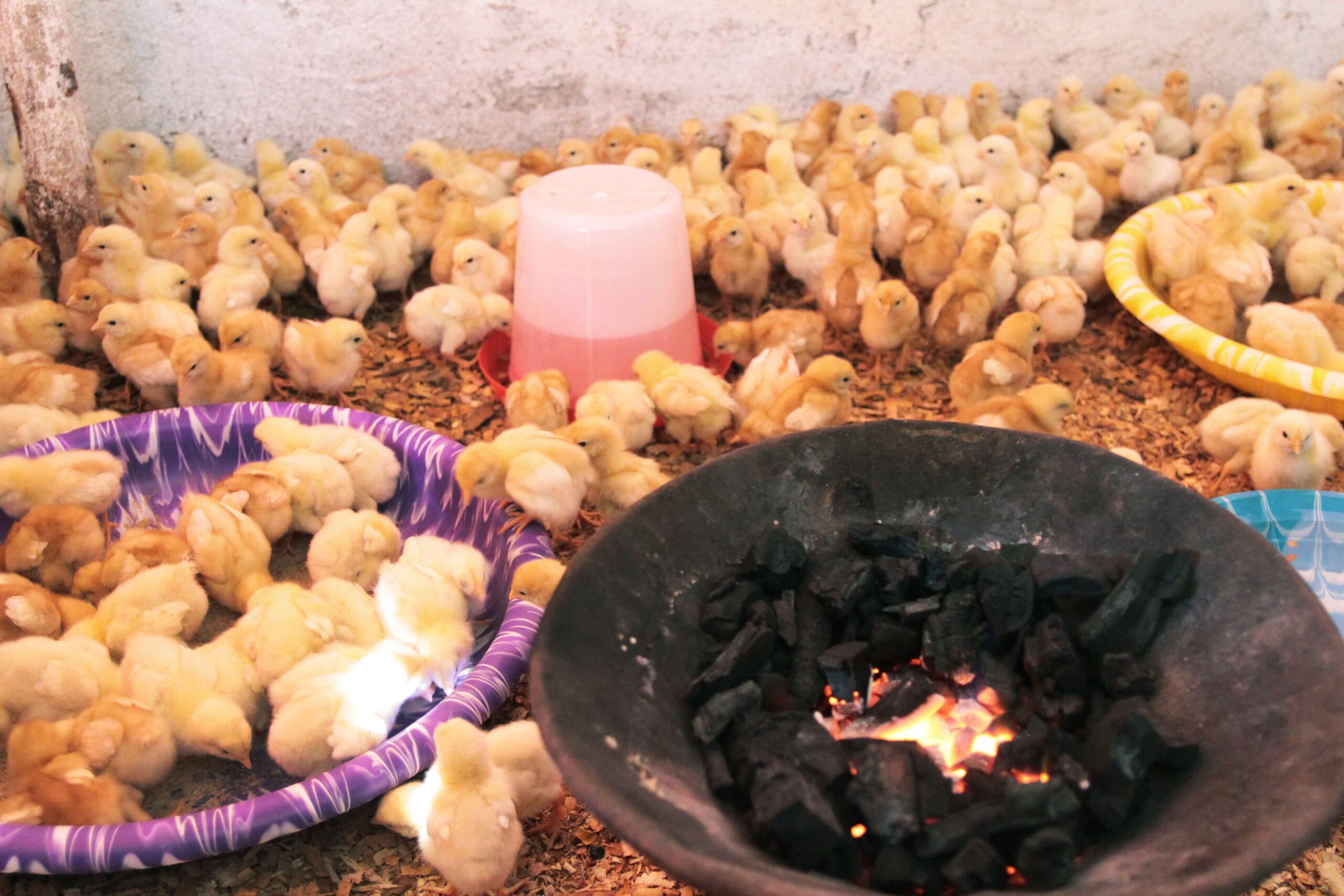
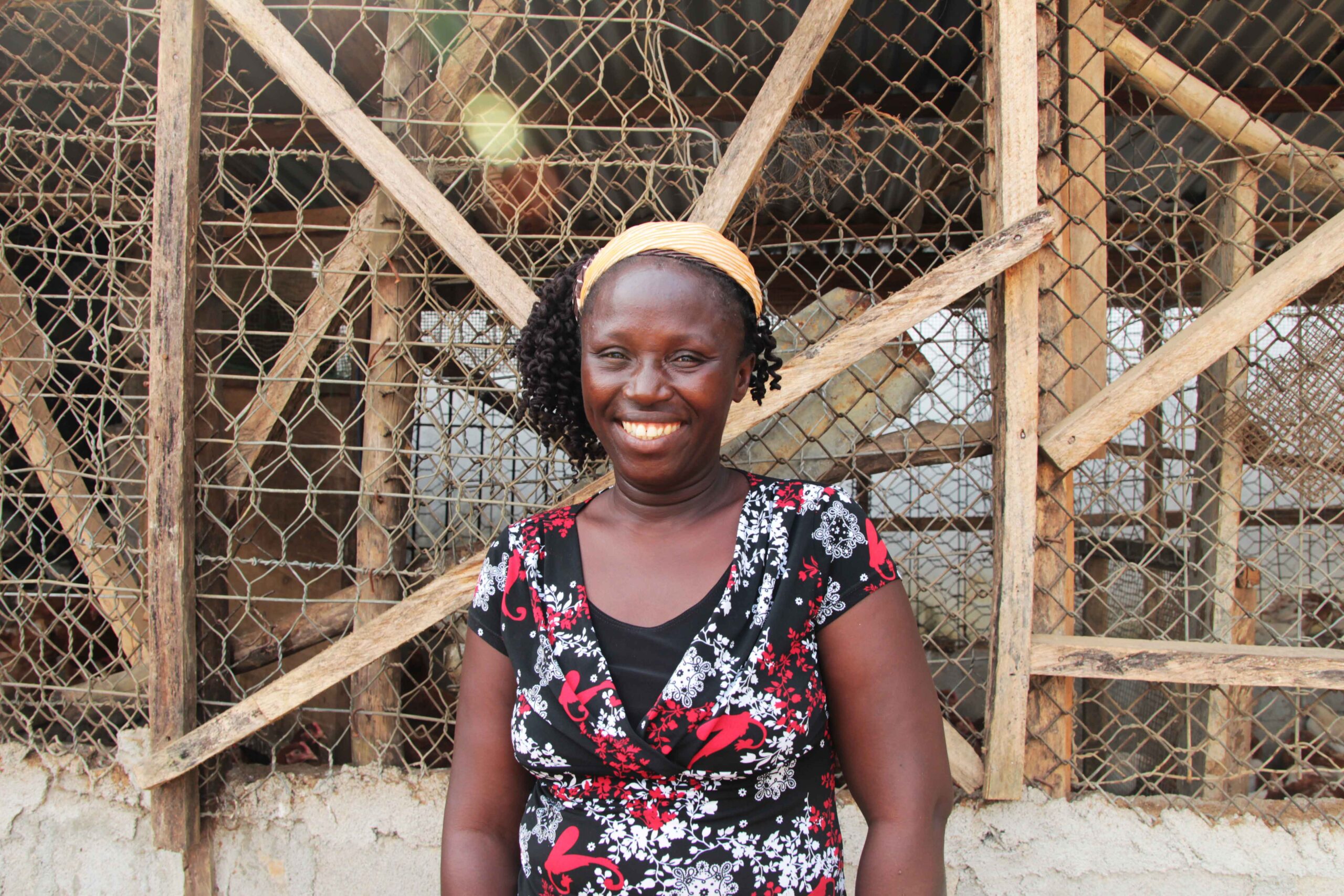
Ciatta (above), who was trained as a chicken farmer, has become a profitable entrepreneur and leader in her community. She received startup inputs to raise her first batch of 100 chickens after participating in a BRAC training. Now, she has raised over 500 chickens, and she plans to expand her coop even further.
Ciatta’s well-manicured coop is a reflection of her training in action. She now has a wholesome source of food to feed her children, and has invested her earnings in a booming small business that employs others. Ciatta is a source of knowledge for her community. She aims to expand her business raising chickens and empower others with the same livelihood opportunities that she has had.
Read more: Discover how one BRAC farmer is building a better future for his family.
When hardworking farmers like Ciatta, Ansu, and Fatu have the tools and skills they need to produce more food, they can feed their families and earn money to reinvest in their households, businesses, and communities. And when their children have enough to eat, they grow stronger and healthier, perform better in school, and become more equipped to be leaders of the next generation.
A recent BRAC study quantified this impact, finding that on average, participants in BRAC Liberia’s agriculture and livestock programs in 2018 increased their income from poultry farming by 92 percent, from growing rice by 29 percent, and from growing cassava by 22 percent.
BRAC believes training is the foundation to unlocking a lifetime of knowledge and skills for farmers to become self-sustaining and resilient to climate shocks. We are proud to work hand in hand with rural communities to build a stronger future for families in Liberia.
Annie Cameron is Program Officer for Health and Agriculture at BRAC USA.
